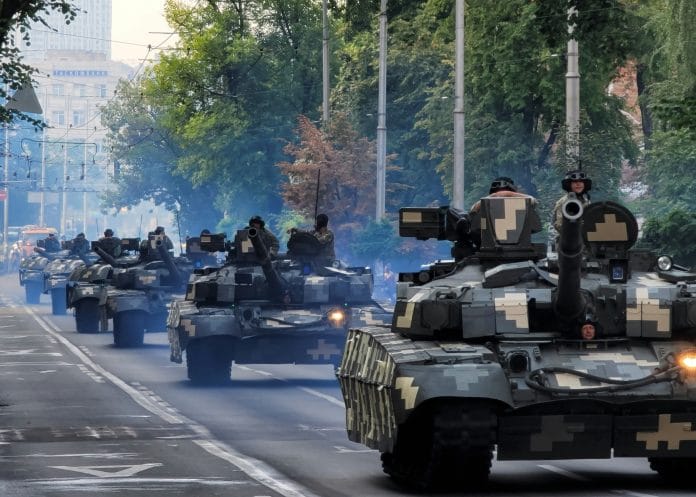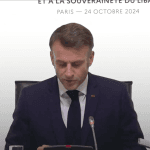The security landscape of the European continent hinges on the European Union’s determination to halt Russia’s unprovoked aggression against Ukraine and to prevent the spread of hybrid attacks to other nations. It falls to Brussels to develop a new, comprehensive understanding of the changing threat environment and to address the internal divisions within the Union, factors that directly impact both the geopolitical situation and the EU’s global standing.
Today’s security challenges for Europe originate from multiple sources, Russia, China, the United States, and the Middle East.
Russia and China are not only trying to reshape the international order based on the rule of law; they are also attempting to divide the world into exclusive spheres of influence. In such a scenario, the emerging CRINK axis (China-Russia-Iran-North Korea) would challenge Western dominance and alter the global security framework. While they currently avoid direct military conflict with advanced democracies, their use of limited and indirect military interventions is intentional and strategic.
Recent drone attacks on Eastern and Northern European countries, violations of airspace by Russian aircraft, and maritime border incursions by naval forces indicate Moscow’s willingness to escalate tensions. These actions reveal the West’s vulnerabilities and serve as acts of humiliation against Europe. The strategic aim behind these provocations is to sideline Europe as a significant obstacle to a Kremlin-dictated peace and to weaken support for Ukraine. Russia is moving from merely declaring its capability to strike EU critical infrastructure to actually crossing borders and carrying out sporadic attacks on logistics hubs, digital networks, military factories and defense facilities.
Contrary to grandiose claims by Russian officials, Moscow does not actually fear NATO expansion. What it fears is that Ukraine’s accession to the Alliance will prevent the Kremlin from ever realizing its imperial ambition of full dominance over Ukrainian territory, a region it considers part of its rightful sphere of influence. This explains Moscow’s persistent demands for the continued presence of the Russian Orthodox Church in Ukraine, along with efforts to maintain the use of the Russian language and culture. Such demands are part of a broader strategy to undermine Ukraine through political or cultural means, should military conquest fail in the near future.
Since the start of Russia’s war of invasion, the United States has taken the lead in providing political, military, and economic support for Kyiv. However, with the return of the Trump administration, a strategic shift has emerged, one that aims to transform Russia from a primary adversary into a strategic partner against China. This vision suggests a division of spheres of influence in Europe, potentially including a partition of Ukraine, which reduces the emphasis on strategically weakening Moscow.
As a result, U.S. concern for European security and prosperity has been pushed into the background, effectively shifting the burden onto European shoulders. This change helps explain the White House’s reluctance to press the Kremlin to speed up an end to the war in Ukraine, the de facto legitimization of Vladimir Putin on the international stage, the scaling back of U.S.-European cooperation on countering Russian disinformation, and the dismissal of leading Russia analysts within the CIA.
Recently, on the fringe of the UN General Assembly, U.S. President Donald Trump seemed to have revised his stance, asserting that Ukraine should continue fighting until all its territories are reclaimed. However, after nearly four years of fierce warfare, Ukraine lacks the capacity to do so alone. Severe manpower shortages, combined with Russia’s overwhelming military and economic superiority, are clearly taking a toll.
In this context, the current White House position is increasingly aligned with that of Europe: Ukraine must continue its resistance until Russia is defeated. Yet behind this narrative, Europe’s true aim is not only to punish Russia as an aggressor state, but to buy time, to prepare for the possibility of direct confrontation with Moscow should defeat prove elusive.
Another complication is the current U.S. – Europe split over Palestine recognition. By massively bolstering U.S. distrust of one vector of European diplomacy, this will complicate support for Ukraine in ways still difficult to calculate. Hopefully this is just a temporary shock, but there are groups in Washington that will see things differently.
Ukraine, for its part, seeks strategic clarity and firm security guarantees from the West, namely, NATO membership. However, both the U.S. and EU remain hesitant to engage in direct confrontation with Russia, maintaining deliberate ambiguity on the matter. The potential deployment of a coalition of the willing on Ukrainian territory also remains unresolved, with such a presence only considered feasible post-conflict and pending formal treaty ratification.
Under these circumstances, military and financial support for Kyiv becomes an existential priority. Yet European indecisiveness in countering Russian aggression is enabling the conflict to escalate further. Every delay in weapons deliveries or sanctions enforcement only emboldens the Kremlin and reinforces its sense of impunity. Governments across Europe, gripped by fear of Russian retaliation and balancing internal political pressures with support for Ukraine, are steadily losing the strategic initiative.
Analysts from “The Hill” have warned that Ukraine’s armed forces require sustained, not sporadic, support. They urge Western nations not to confuse diplomacy with concession-making, as any sign of ambiguity simply invites further aggression.







